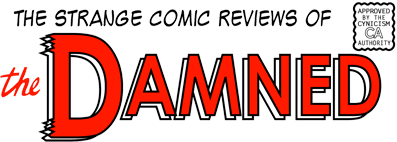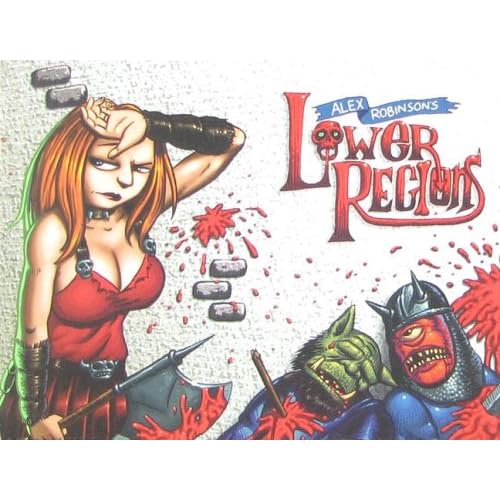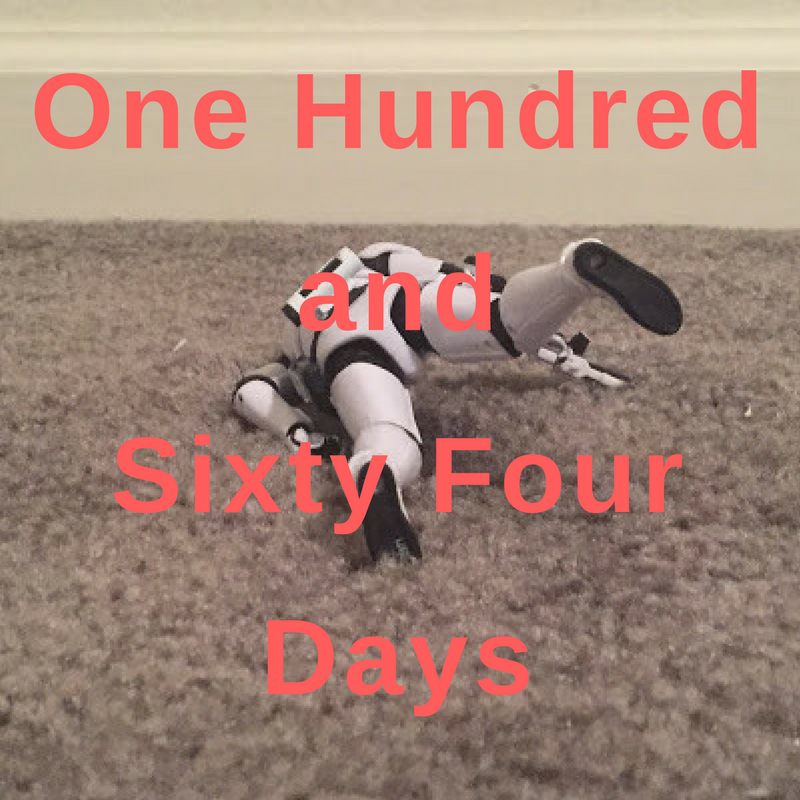

The Black Diamond: Get In the Car and Go
by Larry Young & Jon Proctor
(Travels With Larry: Supplemental)
I'd be disingenuous if I didn't lead off this review by saying that Larry Young has had a long and fruitful association with this blog. Way back in the early days - as in, the very first months - of The Hurting, Larry was one of the first comic peoples to really get behind the whole "blogosphere" thing. He's a smart man when it comes to selling comic books, and he was one of the first to realize the marketing potential of a whole network of websites dedicated solely to discussing and criticizing comic books - a whole pile of websites devoted to the proverbial "hand sell". I can't say for certain if one of my reviews - good or bad - has ever resulted in the sale of a single comic (save for the very occasional traffic my Amazon links get). The actual value of the internet as a promotions tool for comics is not measured in sales, but "buzz". Marvel and DC figured this out a while back, and the recent jaw-dropping press releases promoting Marvel's latest War Machine revamp serve as conclusive proof - as if any was needed! - that in comics, any press is good press, so long as they spell your name right and print your Diamond order code correctly.
That said, I'm not here to blow smoke up Young's skirt. For all the goodwill Young has cultivated in the blogosphere in the middle of the decade, the last couple years has seen the company remarkably silent. Admittedly, some of the reasons for this can probably be chalked up to personal issues - family deaths, the birth of a son. The company is basically two people, Young and his wife Mimi Rosenheim, so personal issues are, unfortunately, de facto business stumbling blocks. But aside from that, the company just hasn't done a lot lately. The last half-dozen or so OGNs I've received from the company haven't done a lot for me, I'm sorry to say. Some of the bigger names who consistently worked for the company in its formative years have been silent. They lost arguably their biggest name "franchise" - Brian Wood and Becky Cloonan's DEMO to Vertigo. Even Joe Casey's remarkable Codeflesh is getting a new edition, from the series' original home, Image. I don't know the whys or wherefores of these setbacks - and I'm certainly not going to speculate in a public forum, that's Rich Johnston's job - but the fact remains that a company which four or five years ago seemed poised for much bigger and better things is facing the turn of the decade in a position of seeming or actual retrenchment. It's, frankly, a shame, because I like the publisher, and even when I haven't liked every specific release, I've long admired the company's general goals and aesthetics. I actually consider Young to be - if not a close friend - a good acquaintance, so I mean it when I say I want his company to succeed. (There's my reviewer's impartiality, in case you were wondering.)

But I've come here not to bury Larry Young, but to praise him - for whatever the failings of Young the Businessman, Young the Writer remains one of my absolute favorites. I don't think I've ever read a Larry Young comic I've disliked. I still recommend Astronauts in Trouble as one of the best hard-sci-fi series of the last decade, and likewise, Planet of the Capes is a criminally underrated bit of deconstructionist superhero narrative. So, when I met the new year with a recommitment to featuring reviews for this blog, it should come as no surprise that I found Black Diamond sitting at the very top of my too-read pile.
Which does not mean that I wasn't skeptical. I'd read the first couple issues in periodical form before resolving to wait for the trade, and while I enjoyed my initial exposure to the material, I was still a bit wary about something which held every promise of being, well, a bit more of an action story than I usually care for. Not to say I'm a wuss (although I probably am), but many of Young's obvious touchstones - fast cars, seventies road movies, Bullitt - are not really big on my radar. About the only thing I know about cars is when I need to get the oil changed on my 1998 Mercury Sable. (Which is not to say I don't harbor a strange fantasy about one day owning a primo 1964 Chevy Impala, black, but for entirely different reasons altogether.)

But I should have known better than to doubt Young. Black Diamond really isn't a story about fast cars and hard blacktop - although that's certainly a part of it. But I can't help thinking that anyone picking up this book for the promise of Mad Max-style car chases (or, barring that, Blues Brothers-style car wrecks) will walk away sorely disappointed. Young tips his hand almost from the beginning, with his references to Tom Stoppard and Rosenkrantz & Guildenstern - a play about incidental characters who can't quite figure out that they're incidental characters, trying to understand the shape of their narrative when the narrative they're in involves them only peripherally. Black Diamond is itself concerned with a group of characters only peripherally involved in a much larger narrative. That narrative is the story's science-fiction "hook" - the existence of a huge cross-country elevated freeway sometime in the near future, sort of an American Autobahn, only given over totally to outlaws, criminals, transients and punks. The overarching plot concerns the efforts of the federal government to win back the Black Diamond, cracking down on the ne'er-do-wells by sending the military in to restore law and order one mile at a time. Against this background, we see hints of the government machinations involved in these decisions, and the corporate cross-machinations of those involved in supplying the United States valuable petroresources.

It's a huge canvas - sprawling - and certainly the most ambitious thing Young has done yet. My first instinct as a critic is to ask the basic, bottom-dollar question, does it work? Does it hang together on the most basic level? But then, reading the book, you realize these questions aren't really important. Does it work? It's not supposed to work, is the best I can come up with. Much of the book is devoted to exposition, detailing the various factions and concepts involved in this not-so-strange near-future scenario. Contrasted against the macro scale of the global concerns, we have the immediate plot, the story of a dentist out to save his wife, held captive by sinister forces bent on using their hostage as a bargaining chip to keep the road free of federal interference. This story, at least, reaches some form of resolution - the hero sets out from San Francisco heading east, right into the jaws of the imminent conflict between federal forces and the road's outlaw irregulars. He finds what he's looking for, at least.
But the book isn't about resolution. It's about stymieing the readers' expectations of resolution. Just like poor Rosenkrantz & Guildenstern, hung at sea before they ever figure out what's going on, the book ends not merely on a cliffhanger, but on the horns of a proverbial dilemma - how to resolve the irreconcilable, the demand represented by the fiction readers' desire for conclusion tempered with the fiction writers' understanding that irresolvable conflicts often have no solution whatsoever.
All of which means that Black Diamond is less an action story about fast cars in the future, than a metafictional exercise in the impossibility of fiction to properly encapsulate complex systems. The author and audience are essentially immobilized, exhausted by mutual consent, unable to reach a constantly receding conclusion, much like Zeno's namesake paradox. The book is purposefully designed to frustrate on almost every level, up to and including the putative "climax", motivated by the most surprising bald-faced dues ex machina I've ever seen, just about.
So, does it work? Well, yes, sort-of. I've been mulling the story over for a few days since I finished the book, and I have yet to reach anything resembling a satisfactory conclusion. It almost seems like a parallel to Grant Morrison's stated aims regarding "Batman R.I.P." and Final Crisis - constructing a narrative so packed with signifiers and implication that practically all that's left at the end of the book is signal and inference. It didn't work for Morrison's work - as I've already stated - because he sacrifices too much coherence, at the cost of leaving the lions' share of the interpretational work in the readers' lap. That approach, frankly, has only arguable place in any Batman comic (you can, I suppose, make an argument that it works better in Arkham Asylum, but that's still a contentious assertion), and certainly not in the company's tentpole franchise Batman comic. Here, though, it works a lot better - Young doesn't have to be concerned with the audience's expectations regarding how a Batman event comic should read. He does have, admittedly, the audience's expectations regarding how action-packed gearhead speculative fiction narratives should read, but there's a lot more leeway. In any event, as I said, this book is about subverting expectations. From the very beginning, the narrative is filled with signifiers pointing towards the story's open-ended conclusion - it's not like we're promised a resolution that simply never arrives (a la "Batman R.I.P.").

But still, does it work?
I've given a qualified "yes", even though I admit I'm still chewing it over. Ask me again in a few years how the book has aged. It took me a while to "get" Planet of the Capes after my initial read, after all. I "get" Black Diamond: it's a ballsy piece of storytelling sleight-of-hand that almost careens tragically into the "too clever by half" column but just manages to stay on the side of the angels, due pretty much single-handedly to Young's sure hand. I will repeat what I said a few hundred words ago: Young is a much better writer than a businessman (and he's no slouch as a businessman), and it's a shame he doesn't write far, far more than he does. For better or for worse, I could do with another dozen or more comics that challenged and stymied me as much as Black Diamond.



















